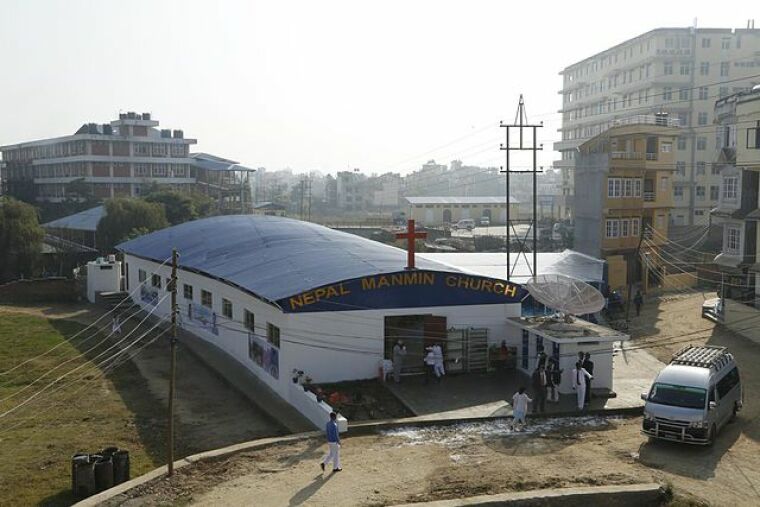Nepalese parliament advances measure that would outlaw religious conversion

The Nepalese parliament has reportedly advanced a legislation that would outlaw religious conversions and the "hurting of religious sentiment" across the country.
On Aug. 8, the parliament passed a measure that was aimed at amending and integrating prevalent laws relating to Criminal Offense, according to Christian Solidarity Worldwide (CSW). The legislation is expected to become law as soon as it is approved by the president.
However, there are concerns that the legislation could be used to target religious minorities, like what occurred in the Charikot case in June 2016, when eight Christians were accused of converting children after they shared a comic book about the story of Jesus.
CSW noted that the wording of Clause 158 of section 9 of the Bill is similar to Pakistan's blasphemy laws, which makes it a criminal offense to insult another's religion.
Human rights advocates in Nepal have argued that the bill restricts freedom of expression, as well as the freedom of religion or belief, and are now calling for the legislation to be amended.
"We are deeply concerned that if this Bill becomes law, we will see more cases like Charikot and further restrictions on the right to freedom of religion or belief in Nepal. The lesson from India is that anti-conversion laws not only restrict the rights of an individual to adopt a religion of their choice, but also put religious minority communities at risk of hostility and violence," said CSW Senior Press Officer Kiri Kankhwende.
Similar anti-conversion laws are currently enforced in Burma and in six Indian states. CSW has raised its concern that such laws have been misused to foster social intolerance and violence towards peaceful religious activities, and to falsely accuse religious minorities of forcefully converting others.
On Aug. 10, Lokmani Dhakal, MP of the Janjagaran party of Nepal, requested the removal of the sections that outlaws religious conversion. The lawmaker pointed out that the country is a signatory to international treaties that protect the freedom of religion and human rights.
"[P]lease don't let it be possible for the world to say of Nepal that we are the kind of nation that on the one hand signs international treaties but when making internal laws and in implementing them, does something else," the lawmaker added.
A recent report from World Religion News has noted that there has been a significant rise in the Christian population in Nepal, from 458 Christians in 1961 to 102,000 in 2001. In 2011, the number of Christians increased substantially to 375,000.
The report suggested that substantial increase was due in part to the caste system in Hinduism. While the caste system has been outlawed in Nepal since 2001, many people belonging to lower castes are compelled embrace Christianity because the discrimination based on caste continues to thrive, especially in the rural parts of the country.
Many non-Christian religious leaders suggested that one of the reasons behind the conversions was greed, claiming that those who were converted received money, free blankets, rice and clothes from Christian missionaries.
On the other hand, John Pudaite, president of Bibles For The World, asserted that the Church grew quickly because many people were attracted to Christ's message of truth and mercy.
 Christians don't have to affirm transgenderism, but they can’t express that view at work: tribunal
Christians don't have to affirm transgenderism, but they can’t express that view at work: tribunal Archaeology discovery: Medieval Christian prayer beads found on Holy Island
Archaeology discovery: Medieval Christian prayer beads found on Holy Island Presbyterian Church in America votes to leave National Association of Evangelicals
Presbyterian Church in America votes to leave National Association of Evangelicals Over 50 killed in 'vile and satanic' attack at Nigerian church on Pentecost Sunday
Over 50 killed in 'vile and satanic' attack at Nigerian church on Pentecost Sunday Ukrainian Orthodox Church severs ties with Moscow over Patriarch Kirill's support for Putin's war
Ukrainian Orthodox Church severs ties with Moscow over Patriarch Kirill's support for Putin's war Islamic State kills 20 Nigerian Christians as revenge for US airstrike
Islamic State kills 20 Nigerian Christians as revenge for US airstrike Man who served 33 years in prison for murder leads inmates to Christ
Man who served 33 years in prison for murder leads inmates to Christ


 Nigerian student beaten to death, body burned over ‘blasphemous’ WhatsApp message
Nigerian student beaten to death, body burned over ‘blasphemous’ WhatsApp message 'A new low': World reacts after Hong Kong arrests 90-year-old Cardinal Joseph Zen
'A new low': World reacts after Hong Kong arrests 90-year-old Cardinal Joseph Zen Iran sentences Christian man to 10 years in prison for hosting house church worship gathering
Iran sentences Christian man to 10 years in prison for hosting house church worship gathering French Guyana: Pastor shot dead, church set on fire after meeting delegation of Evangelicals
French Guyana: Pastor shot dead, church set on fire after meeting delegation of Evangelicals ‘Talking Jesus’ report finds only 6% of UK adults identify as practicing Christians
‘Talking Jesus’ report finds only 6% of UK adults identify as practicing Christians Mission Eurasia ministry center blown up in Ukraine, hundreds of Bibles destroyed: 'God will provide'
Mission Eurasia ministry center blown up in Ukraine, hundreds of Bibles destroyed: 'God will provide' Church holds service for first time after ISIS desecrated it 8 years ago
Church holds service for first time after ISIS desecrated it 8 years ago Burger King apologizes for 'offensive campaign' using Jesus' words at the Last Supper
Burger King apologizes for 'offensive campaign' using Jesus' words at the Last Supper Uganda: Muslims abduct teacher, burn him inside mosque for praying in Christ’s name
Uganda: Muslims abduct teacher, burn him inside mosque for praying in Christ’s name